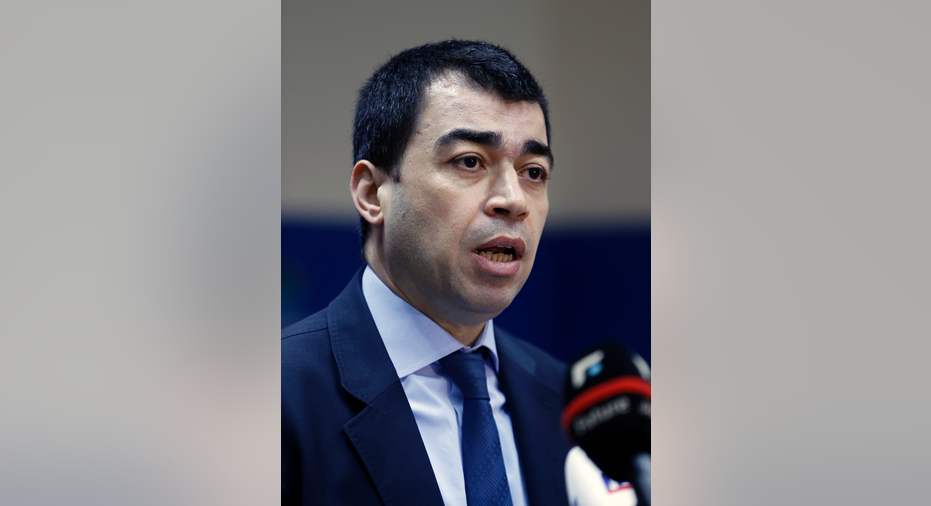Lebanon: Oil and gas drilling to begin in 2019

BEIRUT – Lebanon will begin exploratory drilling for offshore oil and gas in 2019, Energy and Water Minister Cesar Abi Khalil said Friday, as the country hopes to find resources to shore up its indebted economy.
"This is going to create a new sector in the economy," said Abi Khalil. "And it is going to secure a local source for energy."
Lebanon's economy is mired in debt and struggling to grow as the civil war in neighboring Syria stretches into its seventh year. The conflict has paralyzed trade and pushed some one million refugees into Lebanon.
The country has been slow to capitalize on geological survey findings from 2011 indicating a strong possibility of mineral resources in its offshore waters. Its government has been crippled by political deadlock emanating from the crisis in Syria as parties butt heads over taking sides in the war.
It is not certain whether companies will find reserves in Lebanese waters. But a bid, accepted by the Lebanese government on Thursday, by a consortium of international oil and gas giants to explore two sectors in the eastern Mediterranean reflected the potential for a windfall, said Mona Sukkarieh, a political risk analyst at the Beirut-based consultancy group Middle East Strategic Perspectives.
"If they choose to proceed with exploration and drilling, then we are talking about a lot of money," said Sukkarieh.
The consortium's members are Eni from Italy, Total from France and Novatek from Russia. Lebanon's government approved the necessary licenses Thursday.
The country's share of revenues from oil and gas sales will measure between 55 and 71 percent, said Abi Khalil. The window for exploration will be open for up to six years. The contracts with the three companies will be signed in early 2018.
A major finding in Lebanon's southernmost waters could raise the possibility of a dispute with its neighbor Israel. There are over 800 square kilometers of waters claimed by the two countries which are technically at war.
Abi Khalil said exploration would proceed in "Block 9", one of the two sectors open for drilling, in any case.
"It is our right to explore in all our southern blocks, we are determined to exploit this national wealth," he said.
Several companies told Lebanon's Petroleum Authority in 2013 they considered Block 9 the most promising, according to Sukkarieh.
The U.S. Energy Information Administration estimated in 2010 there were 122 trillion cubic feet of undiscovered natural gas resources in the eastern Mediterranean basin.
Gas is expensive to extract. A major finding could spur investment in Lebanon's failing energy sector that civil society activists say is rife with corruption. Lebanon experiences rolling blackouts on a daily basis, despite massive subsidies to its national electricity company. The World Bank says transfers to the Electricite du Liban account for a staggering 40 percent of the debt the country has accumulated since 1992.
Abi Khalil said politicians were working on developing a national sovereignty fund to invest resource revenues in a transparent manner.



















